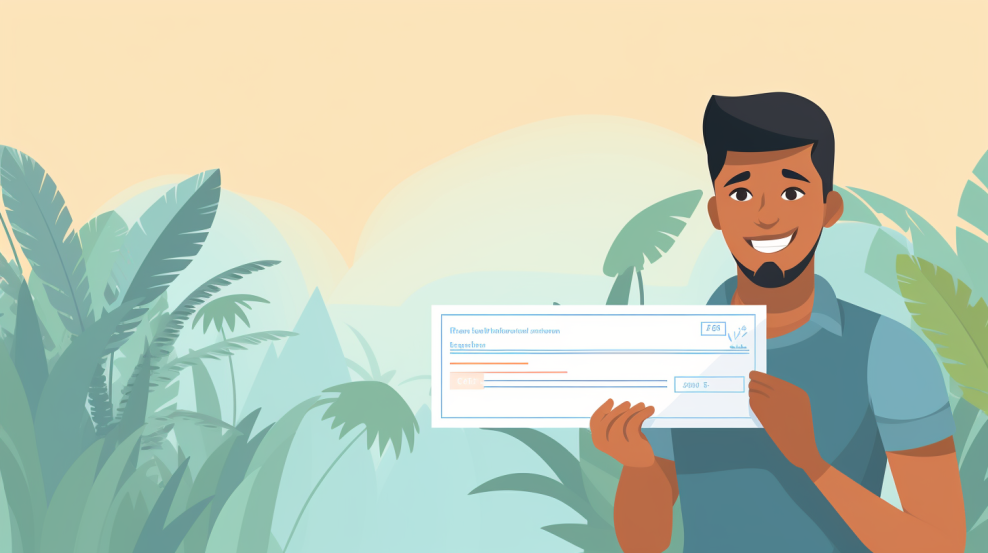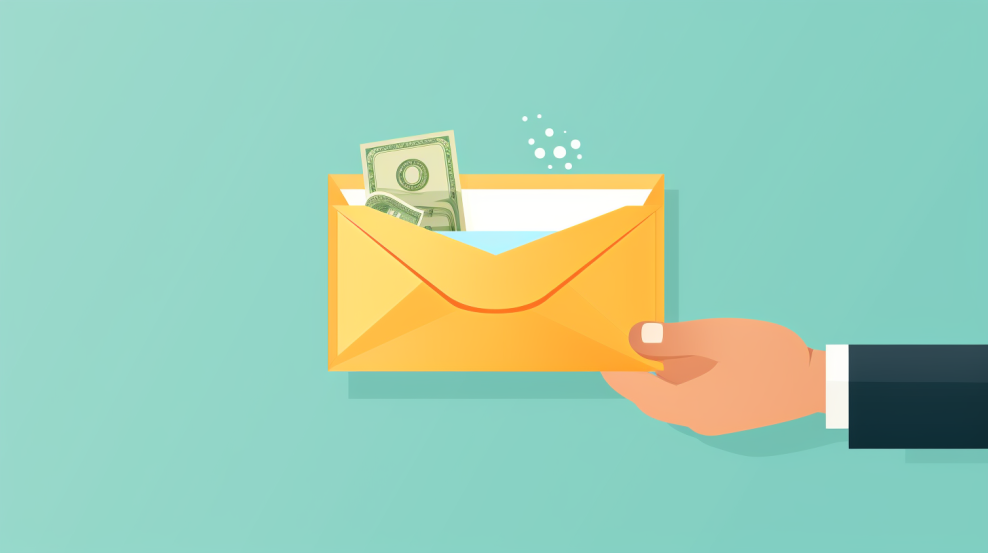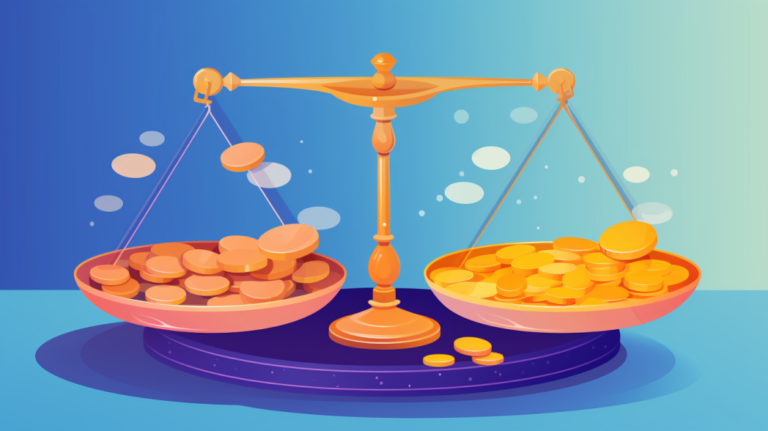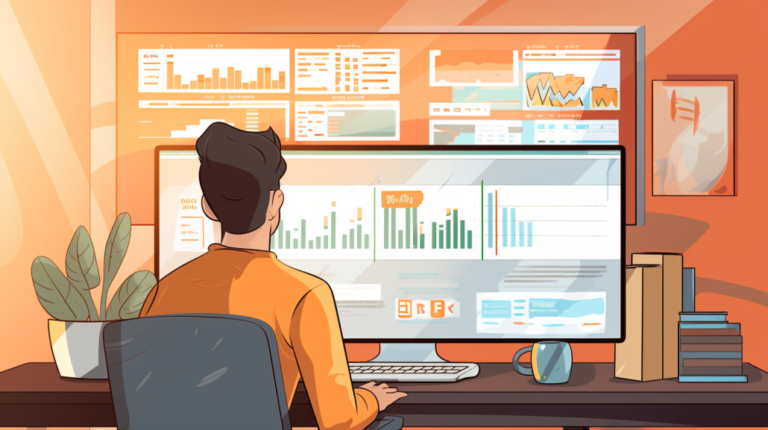How to Budget on a Variable Income

Does the unpredictability of your income make budgeting an uphill battle for you? Trust me, I know how tough it can be. Diving into financial strategies can turn things around even if your monthly earnings aren’t static.
In this article, I’m going to share practical tips and tactics that will help you create and maintain a consistent budget despite the fluctuation in your income. So come on in; valuable advice is just one more paragraph away!
Key Takeaways
- Know how much money you make each month.
- Write down what you spend your cash on every day.
- Take away costs from income to check spare money left.
- Put extra cash in a savings account for sudden costs.
- Keep spending and pay accounts separate.
- Check where money goes often to find ways to save more.
- Use the envelope system to stop overspending habits.
Understanding Variable Income

Variable income is money you earn that changes from month to month. It’s not the same every time. For some jobs, like sales or freelance work, how much you get paid can differ a lot.
This kind of pay is known as fluctuating, irregular or variable income.
To make a budget with this type of pay, first look at your lowest monthly income. Use old pay stubs to help find what your lowest amount was in recent months. This way you can plan for the least amount and any extra becomes a bonus! Don’t worry if it feels hard at first; using tools like the free EveryDollar app makes budgeting on an irregular income easier.
How to Budget With Variable Income

In the world of variable income, budgeting moves from being an optional exercise to a vital survival skill. To initiate your budget, start by listing out all of your potential sources of income including not just primary jobs but any side hustles or freelance assignments you might have as well.
The next step is outlining expenses which will give you a clear picture of what it costs for you to live each month – these can be anything from rent and utilities to food and medical care.
After expenses are listed, deduct them from your total income giving you an overall view at how much money is left over for savings or discretionary spending. But remember! In managing variable income, consistency in tracking expenses makes a huge impact – allocate some time every day or week to updating this list ensuring that everything’s on track.
Now here comes payday and due to fluctuations in your earnings, it’s crucial that we adjust our budgets accordingly – if there’s surplus cash flow this could mean transferring more into savings while lean months may require scaling
List Your Income
Start with writing down all the money you make. You must list every pay source no matter how small. Your job might give most of your cash, but don’t miss out on tips or side business gains.
If your pay varies each month, use an old check from a low-pay month as guidance to see just what you may get paid soon. This way, even if you earn more than expected, it becomes extra income rather than a standard part of your budget.
Outline Your Expenses
First, write down all your costs. These are things you spend money on every month. Put food, housing, medical care, and basic needs like clothes at the top of your list. After that, take note of other costs such as phone bills and child care.
Also keep track of how much you pay for loans or insurance premiums each month. Don’t forget little things! Be sure to add an extra slot for extras not needed but still bought at times.
List costs from most important to least so it’s easier to know where your cash goes first.
Deduct Expenses from Income
Cutting costs from your pay check is a key step in budgeting.
- First, make a list of all your monthly bills.
- Next, take the smallest income you’ve received in recent months.
- Use this small income as your guide to plan the month’s budget.
- Take care of food, utilities, shelter, and transportation first. We call these “The Four Walls”.
- After that, take care of other things like insurance and childcare.
- Watch how you spend every day with an app or pen and paper.
- Lastly, what is left after paying for everything is your extra income.
- You can save this extra money for an emergency.
Track Expenses Consistently
I always keep an eye on my cash flow. I may earn a different amount each month, but tracking expenses never changes
- First, I pick up pen and paper or open the budgeting app on my phone.
- Every day, I note down all that I spend – from bills to snacks.
- Regular bills like rent and utilities get recorded when they hit my bank account.
- Car payments and gasoline costs add up fast, so they get special attention in my notes.
- Phone and internet service fees don’t escape my notice either!
- If there’s childcare or loan payments to consider, these go right into my expense tracking too.
- By doing this daily, there are no surprises at the end of the month or when payday comes around.
- When it’s time for grocery shopping, I list what is needed before hitting the store to avoid impulsive buys.
- Lastly, every cent spent in each category gets logged in right away.
Adjust Budget on Payday
Payday is the time to adjust your budget. My first task on payday is seeing how much money I have made. Then, I look at what I need to spend money on next month. This helps me see if my wages will cover those costs.
After that, it’s all about splitting the cash into two parts. The first part pays for things we must have, like food and rent. The second part goes towards other stuff like going out or buying new clothes.
By doing this, I don’t overspend and always make sure important bills get paid first.
Creating a Budget for Fluctuating Income

Understanding how to cope with fluctuations in your income is critical for financial stability. Begin by calculating your average monthly income over the last year, including both highs and lows.
Once you’ve got a number, allocate your paychecks wisely – covering essential costs first like rent or mortgage payments. Lastly, don’t let extra cash burn a hole in your pocket; instead use it to build an emergency fund and prepare for unexpected expenses down the line.
This pragmatic approach helps you navigate through high-earning periods without overspending and ensures you’re covered during leaner months too!
Calculate Your Average Income
First, get all your pay slips from the last year. Add up all your income for each month. Now, divide this by twelve to find out your average monthly income. If you got extra money some months, put that in too! You need to know what you usually make every month.
This helps you plan how much to spend and save even if your income changes a lot. To keep track of it all, try using EveryDollar budget app—it’s free and easy!
Allocate Your Paychecks
It’s important to split your income into clear parts. It helps you know where each dollar goes. This way, you can control your money better. Let’s now talk about sorting your pay:
- Start with the Four Walls first: food, utilities, shelter, and transportation.
- Use apps like EveryDollar for help.
- Put funds for fixed bills in one place: Rent, loan payments, etc.
- Set aside cash for variable costs: These could be gas or phone bills.
- Keep an eye on non-essential expenses: Cut them when you need to.
- Save any extra income: An emergency fund is a smart move.
Build an Emergency Fund
Saving extra money for emergencies is key in budget plans. Sometimes, you may have more money left at the end of a month. Don’t spend it! Rather, put it into an emergency fund account.
This money will be there when hard times come or when unexpected costs pop up. It gives peace of mind and helps to keep the budget steady even on bad income months. Having two accounts can help – one for getting paid and paying bills, another just for saving this ‘extra’ money.
Tips for Sticking to Your Budget on a Variable Income

Navigating a variable income can be tricky, but with the right tips and strategies – like saving excess money, separating accounts for revenue and spending, frequently reassessing discretionary spending, and adopting the envelope system – you could keep your finances under control.
Curious about these practical steps that help stay on top of variable income? Keep reading to learn how they might streamline your budget!
Always Save the Excess
Have more money than you thought you would this month? Great! But don’t rush to spend it. Put that extra cash in a savings account. This can help when your income is less one month or if sudden costs come up.
You will have peace of mind, knowing funds are there if you need them. Over time, these savings can add up and even be used for long-term goals like home buying or retirement saving!
Maintain Separate Accounts for Revenue & Spending
I keep separate accounts for revenue and spending as a key part of my budgeting plan. This makes it easy for me to tell the difference between what I earn and what I spend.
- First, I place all my pay into the revenue account right when I get paid. This gives me a clear view of how much money I’m making.
- Next, I set up automatic transfers from my revenue account to my spending account for fixed expenses. Fixed expenses are costs like rent or bills that don’t change each month.
- The spending account is where all my payments happen. Things like food, gas, clothing go out from this account.
- Every time I make more money than expected, I shift the extra amount into my emergency fund.
- Keeping both accounts separate lets me see how much money is left at all times.
- This system also helps to stop overspending since I only spend funds from my spending account.
- It’s also a good idea to have a backup plan if something goes wrong. An emergency fund provides an extra layer of safety.
Regularly Re-Evaluate Discretionary Spending
Make sure to look at your spendings often. It keeps you aware of where money goes. This helps when money is tight or changes a lot for some months. After three, six or even twelve months, check spendings again to find ways to save or cut down.
Check on things you choose to buy with the left-over money after required bills are paid off like gym and TV bills. You may not need these things anymore but still pay for them every month! Services like BILLFIXERS can help lower the cost of such monthly charges too.
Think about it this way – small cuts can lead to big saves in time.
Use the Envelope System to Control Impulse Spending
The envelope system is a helpful tool. It helps you manage your spending geld. You take cash and put it in envelopes. Each envelope has a label like “food,” “rent,” or “fun.” When you need to buy something, use the money from that envelope.
If an envelope is empty, don’t spend more until there’s new cash.
This way of budgeting stops overspending habits often tied with card payments. Plus, it gives a clear look at where your money goes each month!
How to Handle High-Cost Months

There are times when we have to spend more money. Often, these high-cost months hit us hard because it’s something like a big ailment or car repair. Here is how you can deal with those higher spending months.
Put some cash aside each month for these events that make you spend more. If the cost is too large and hits on one of your emergency funds, then don’t be scared to use it! That’s what it’s there for after all.
Try if possible though to replace this cash as soon as you have a good income month.
Lower non-essential spending during pricey periods will also help. Reduce eating out, entertainment or other less needed items until your bank balance looks healthy again.
The Importance of an Emergency Fund for Variable Income
Having an emergency fund is like having a safety net. It’s there to catch you when life throws something unexpected your way. If your paycheck changes each month, this can be even more important.
You never know when a big bill might come or if you’ll have a slow work month. This fund gives you peace of mind and keeps worry away.
It’s wise to keep enough money in this fund to cover three to six months of expenses in case something major happens. For example, losing your job or getting sick can leave you unable to work for some time.
Keep these funds in a savings account and use them only for real emergencies, not just any surprise cost. That way, they will always be ready for when most needed.
Conclusion
Budgeting with a variable income is easy! You must list your income and expenses first. Then take away the cost from your pay. Do this track every month to keep things in check! Always save any extra money you get, too.
It can help in hard times or for big buys later on.
FAQs
1. What is budgeting on a variable income?
Budgeting on a variable income means to manage money when you earn differently each month. People like freelancers, sales professionals and contract workers often do it.
2. How can I start budgeting for my irregular compensation?
First, track your expenses for a month to know where money goes. Then create the zero-based budget using either manual or automated budget apps according to planned monthly essentials.
3. What are ‘baby steps’ in managing finances ?
The 7 Baby Steps by Dave Ramsey guide people in paying off debt, saving up and investing for retirements in an orderly way.
4.What’s the use of having separate savings spots or piggybanking?
Savings pots help you set aside cash for big events such as Christmas or birthdays. It also helps with seasonal changes in your cost of living like high energy bills during winter.
5.How should self-employed people plan their budgets?
Self-employed folks may face changing earnings every month due to work flow differences.They can use track spending methods and make adjustments during payday time period based on that data.
6.Why we should always avoid credit card debts while dealing with uncontrollable expenses?
Credit card debt could cause more harm than good; especially the buyer remorse afterwards once you realize unmanaged spendings leading into never ending repayments.






